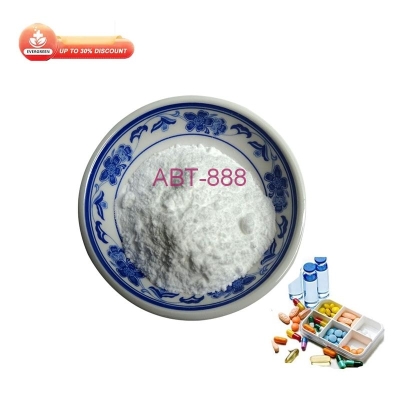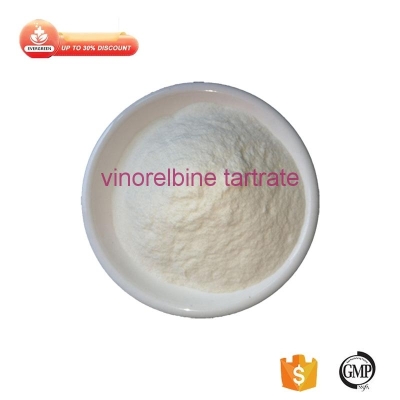Target CCR5 for breast cancer! Leonlimab has strong therapeutic potential in triple negative breast cancer (TNBC) and metastatic breast cancer (MBC)!
-
Last Update: 2019-12-30
-
Source: Internet
-
Author: User
Search more information of high quality chemicals, good prices and reliable suppliers, visit
www.echemi.com
December 30, 2019 news / BIOON / -- cytodyn is a late clinical biotechnology company focusing on the development of a new humanized CCR5 antagonist, leonlimab (pro140), for a variety of treatment indications Recently, the company announced that the phase Ib / II trial and MBC trial of leonlimab in the treatment of metastatic triple negative breast cancer (mtnbc) continue to show a very potential clinical response Further data from the first mtnbc patient showed that after 11 weeks of treatment with leonlimab, no circulating tumor cells (CTC) or metastatic tumor cells were detected in peripheral blood, and CCR5 expression in cancer-related cells was further reduced In the emergency ind protocol, one MBC patient was treated with leonlimab for three weeks, and the tumor was reduced by MRI Bruce, partner of cytodyn and chief executive officer of single cell diagnostics company incell DX "In the first patient, we are pleased to see that these additional data provide further preliminary evidence of efficacy after 11 weeks of treatment with leonlimab, as evidenced by the continued undetectable level of CTC and the reduction of cancer-related macrophage like cells (CAML)," Patterson said So far, these data are consistent with previous studies that evaluated leonlimab as a long-term treatment for HIV infected patients, and no serious adverse reactions occurred in the mtnbc trial " The second patient is a 4-stage MBC patient with cancer that has metastasized to the liver, lungs, and brain This patient was enrolled through the emergency ind protocol This patient has been treated with Herceptin and perjita for more than 1.5 years Herceptin is known to fail about 12 months after treatment, while perjita is known to fail about 1.5 years after treatment The patient received the first infusion of leonlimab on November 25 at a dose of 700mg once a week At two time points after the first infusion of leonlimab, the follow-up scanning results of the metastatic lesions in this patient showed that the tumor was shrunk and the brain edema was reduced, and obviously, several metastatic tumors disappeared Dr Nader pourhassan, President and CEO of cytodyn, said: "these results continue to show the potential of leonlimab in the treatment of mtnbc and HER2 positive MBC patients, which is very exciting We believe that the leonlimab treatment shown in animal studies has eliminated 98% of cancer metastasis and may soon become a reality in cancer patients We are cautiously optimistic that we have enough results to support the application for breakthrough drug qualification (BTD) in January 2020 in the group of patients with unmet medical needs " At the end of February this year, cytodyn company released the results of leronlimab treatment of MBC animal research: in the mouse xenotransplantation cancer model (used to simulate human breast cancer metastasis), the application of leronlimab for six weeks reduced the breast cancer metastasis rate by more than 98% Studies have shown that CCR5 inhibition may destroy signal transduction and ultimately the proliferation of CCR5 + circulating tumor cells (CTC) Leonlimab (pro140) is a humanized IgG4 monoclonal antibody, which can target and block chemokine receptor 5 (CCR5) It is a cell receptor, and plays a variety of roles in HIV infection, tumor metastasis and other immune-mediated diseases (including NASH): (1) treatment of HIV / AIDS: Leonlimab is a new type of therapy called viral entry inhibitors, which can mask CCR5 and protect these cells from virus infection by blocking the entry of major HIV (R5) subtypes into healthy T cells At the same time, leonlimab does not seem to interfere with the normal function of CCR5 in mediating immune response Data from nine completed clinical studies show that leonlimab can significantly reduce or control the HIV load of patients in each study A phase IIB study showed that the single drug treatment of leonlimab could prevent HIV escape, and some patients who received leonlimab treatment had virus inhibition for more than 4 years In the United States, the FDA has awarded leonlimab the fast track qualification for HIV infection treatment Cytodyn has successfully completed a critical phase III study of leronlimab combined with standard antiretroviral therapy for HIV infected people who have previously received treatment, and is rolling in a biologicals licensing application (BLA) for combination therapy to the US FDA, which has now completed one third The company is also conducting another phase III study using leonlimab as a weekly monotherapy for people living with HIV Compared with HIV drugs currently used, leonlimab seems to be a powerful antiviral drug with fewer potential side effects and lower administration frequency (2) Treatment of cancer: some studies have shown that CCR5 plays a central role in tumor invasion and metastasis In some cancers, increased CCR5 expression is an indicator of disease status Published studies have shown that blocking CCR5 can reduce tumor metastasis of invasive breast cancer and prostate cancer in laboratory and animal models In the mouse xenotransplantation model, leonlimab reduced more than 98% of human breast cancer cell metastasis Cytodyn is currently conducting a phase II human clinical trial of metastatic triple negative breast cancer (mtnbc) In May 2019, the U.S FDA awarded leronlimab the fast track qualification for the treatment of mTNBC The company is also conducting additional research on leonlimab in cancer and Nash, and plans to conduct additional clinical trials in due course (3) In terms of immune signal transduction, CCR5 receptor also plays a key role in modulating the transfer of immune cells to inflammatory sites, which is crucial for the development of acute graft-versus-host disease (aGVHD) and other inflammatory diseases Clinical studies have shown that blocking CCR5 with chemical inhibitors can reduce the clinical effect of aGVHD without significantly affecting the implantation of transplanted bone marrow stem cells At present, cytodyn company is carrying out a phase II clinical study of leonlimab, which further supports the view that CCR5 receptor on implanted cells is essential for the development of aGVHD, and blocking the receptor to recognize specific immune signal molecules is a feasible method to alleviate aGVHD In the United States, the FDA has granted leonlimab the orphan drug qualification to prevent GVHD (Note: for the important milestones in 2019 in the clinical development project, future prospects and treatment of HIV and cancer of leonlimab (pro140), click the investor presentation of cytodyn in November, One in Metastatic Breast Cancer and One in Metastatic Triple-Negative Breast Cancer Trials
This article is an English version of an article which is originally in the Chinese language on echemi.com and is provided for information purposes only.
This website makes no representation or warranty of any kind, either expressed or implied, as to the accuracy, completeness ownership or reliability of
the article or any translations thereof. If you have any concerns or complaints relating to the article, please send an email, providing a detailed
description of the concern or complaint, to
service@echemi.com. A staff member will contact you within 5 working days. Once verified, infringing content
will be removed immediately.







